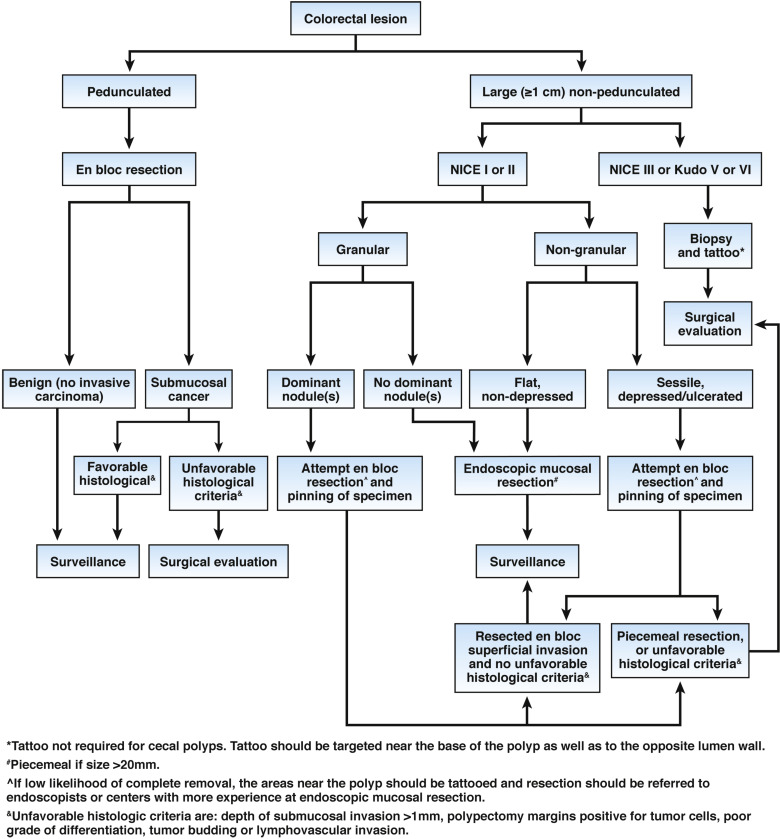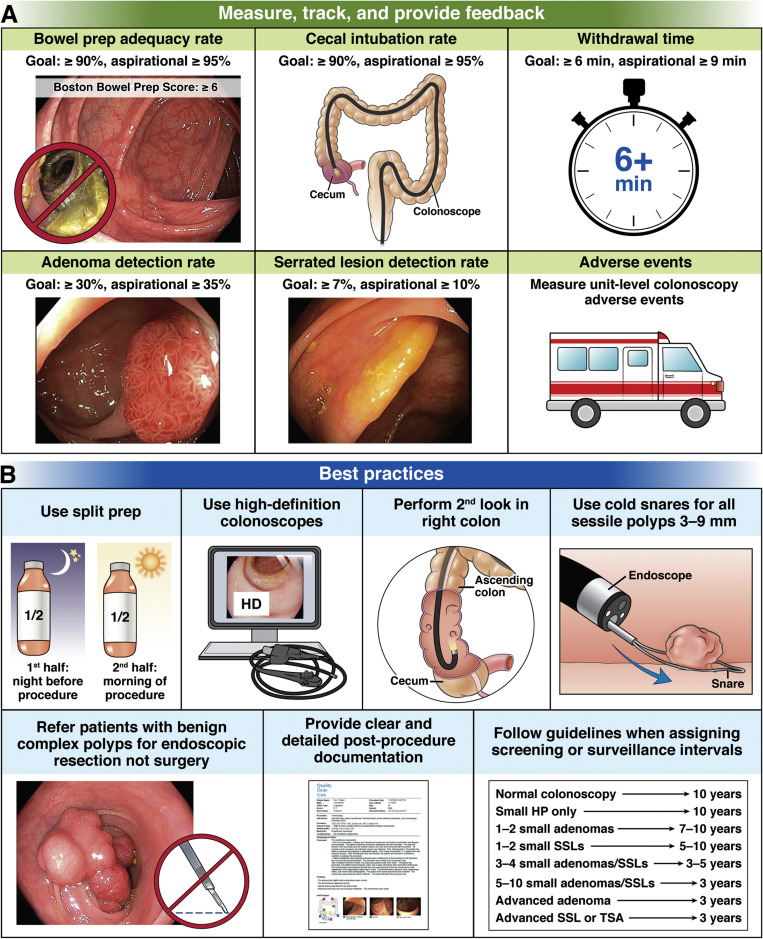Young adult onset colorectal cancer (CRC) diagnosis and management

Expert advice for recognizing the presentation and evidence-based risk factors for young adult-onset colorectal cancer (CRC) and improving care for these patients.
Endoscopic recognition and management strategies for malignant colorectal polyps

A guide from the U.S. Multi-Society Task Force on Colorectal Cancer (CRC) to help endoscopists assess lesions for features associated with CRC and recommendations for resection and follow-up surgery.
Chemoprevention for colorectal neoplasia

Understand the role of medications (including over-the-counter, prescription and vitamins) for the chemoprevention of colorectal neoplasia.
Strategies to improve quality of screening and surveillance colonscopy

Our experts provide metrics and practices that ensure effectiveness, safety and value when performing screening and surveillance colonoscopy.
Endoscopic surveillance and management of colorectal dysplasia in inflammatory bowel diseases (IBD)

Experts provide best practice advice for the prevention, detection and management of colorectal dysplasia in people with inflammatory bowel disease (IBD), including Crohn’s disease and ulcerative colitis.
Updates on age to start and stop colorectal cancer screening

You should start colorectal cancer (CRC) screening at age 45 for average-risk individuals, and end at age 85, according to this update from the U.S. Multi-Society Task Force on CRC.
Roadmap for the future of colorectal cancer (CRC) screening in the U.S.

This white paper outlines the priorities and steps needed to improve colorectal cancer (CRC) outcomes, with the goal of minimizing CRC morbidity and mortality.










